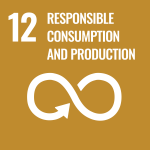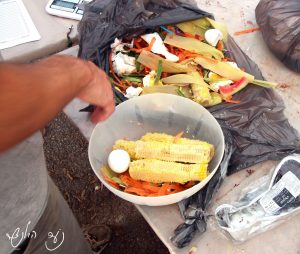 Goal 12: Responsible Consumption and Production
Goal 12: Responsible Consumption and Production
ENSURE SUSTAINABLE CONSUMPTION AND PRODUCTION PATTERNS
Research
In a recent study published in Cognitive Psychology of Environmental Sustainability, UofH researchers successfully used traffic light icons on light bulb packaging to influence consumers to choose the healthier carbon bulb. The results highlight the benefits of attaching traffic light icons to light bulb packaging, assisting consumers to make more health-conscientious purchasing decisions.
Prof. Ofira Ayalon and Dr. Efrat Elimelech of the Department of Natural Resources and Environmental Management, from the Herta and Paul Amir Faculty of Social Sciences, have developed a more reliable method to measure how much food is being wasted in our own homes. Previous measurement methods relied on self-reporting estimations and failed to pinpoint the source, amount and composition of the waste.
Public Engagement
“The lab” podcast series, produced by KAN news, allows listeners to learn who is involved in environmental policy-making, implementation, and regulation. Prof. Ofira Ayalon, of the Department of Natural Resources and Environmental Management, explains why environmental management requires special attention and why Israel urgently needs sharp policies in the areas of waste, energy, and climate change.
A study by researchers of the Department of Evolutionary and Environmental Biology offers a “simple” and low-cost method for converting waste into ethanol, which can be used as sanitizers in the battle against the Coronavirus. Their novel method produces ethanol without generating toxins, providing an alternative for the need to import hand sanitizer gels.
Learning & Students
Topics in Pollution and Environmental Purification offered by the Department of Geography and Environmental Studies equips students with the tools and foundational knowledge to understand pollution production processes and methods of purification. The course focuses on the sources and impact of pollution, and provides insight into sustainable methods of purification using vegetation, bacteria, and advanced technologies.
The Department of Human Services offers a course called Legal Issues in Services and Consumerism, taught by Justice Haim Somech. Western societies consume food, recreation, communications, media, financial, and health services. These services are marketed to increase our desire to consume and purchase them. The course examines the laws and rights legislators use to regulate these bodies.
Operations
To date, more than 100 tons of “e-waste,” including old computers, computer screens, printers and the like have been delivered to the ECOmmunity (Ecology for the Sheltered Community) project. The initiative recycles electronic waste and provides job opportunities for individuals with special needs.
 As part of the Green Campus project, all new buildings on campus must meet Israeli “Green Building Standards.” All existing buildings had air conditioning and lighting renovations this past year in order to improve energy efficiency.
As part of the Green Campus project, all new buildings on campus must meet Israeli “Green Building Standards.” All existing buildings had air conditioning and lighting renovations this past year in order to improve energy efficiency.

